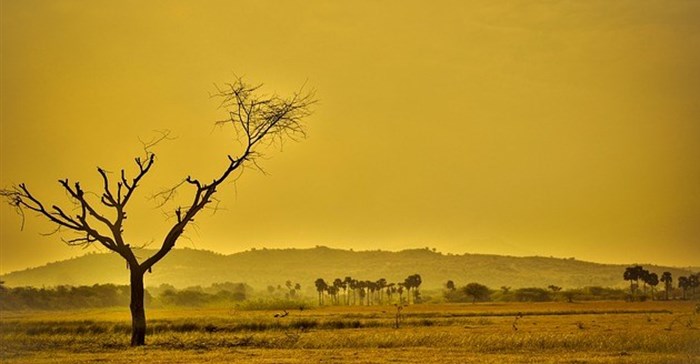
Francois Engelbrecht, CSIR researcher, and his colleagues have published a paper modelling temperature changes on the continent and in Southern Africa and the results reveal a dire future.
The paper shows that, as temperatures rise, Southern African temperatures do so at a much faster rate - leading to an Africa "very different to today". Engelbrecht said Southern African temperatures were already rising more than twice as fast as the global average increase.
Globally over the past century temperatures have risen at 1°C per century. But in Southern Africa the increase has been more than 2°C." Data show the continent will be 3°C-6°C warmer by the end of the century. "In South Africa in the interior places where we have 10 days a year that are regarded as heat waves, this could increase tenfold," warned Engelbrecht.
The warnings come as the world prepares to gather for the 21st UN Summit on Climate Change in Paris in November. He said negotiator scientists were speaking to believed they would have a treaty signed by world leaders, but were not confident agreements to reduce carbon emissions would be meaningful globally to reach climate change goals.
The Intergovernmental Panel on Climate Change wants to reduce temperatures and ensure they do not rise 2°C above pre-industrial temperatures. This is the average temperature before industrialisation. But climate scientists are sceptical that this goal will be achieved. Even if a good agreement on reducing emissions is reached in Paris, Southern African temperatures will still rise by 3°C by the end of the century, said Engelbrecht.
"If negotiations fail to ensure meaningful commitments, we are likely to see rapidly rising surface temperature across the continent," said Engelbrecht. This leads to increased evaporation, less soil moisture, which means a shorter time to grow crops and longer periods in which fires are common.
"For many regions, the impact of temperature increases on the agricultural and biodiversity sectors may be significant, stemming from temperature related extreme events such as heat waves, wild fires and agricultural drought," said Engelbrecht. He said Africa was vulnerable because it could not afford to adapt to climate change and many people were subsistence farmers.
Source: The Times

For more than two decades, I-Net Bridge has been one of South Africa’s preferred electronic providers of innovative solutions, data of the highest calibre, reliable platforms and excellent supporting systems. Our products include workstations, web applications and data feeds packaged with in-depth news and powerful analytical tools empowering clients to make meaningful decisions.
We pride ourselves on our wide variety of in-house skills, encompassing multiple platforms and applications. These skills enable us to not only function as a first class facility, but also design, implement and support all our client needs at a level that confirms I-Net Bridge a leader in its field.
Go to: http://www.inet.co.za